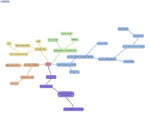- Thread starter
- #401
Alecras234
Senior Airman
- 346
- Sep 6, 2018
Thank you for your help i really appreciate it. Do you mean like this, do these look ok?
First Battle of Marne – 5 Sepember1914
How did Gallieni send more troops to General Joffre? He used taxis
What was the result of the first Battle of Marne? French army and BEF won
Who led the German army to defeat the Russians in East Prussia? Paul Von Hindenburg and Erich Ludendorff.
When was the second Russian army defeated by the German army? August 1914
What Russian commander committed suicide? Alexander Samsonov
When was the first Russian army defeated by the German army? September 1914
First Battle of Marne – 5 Sepember1914
How did Gallieni send more troops to General Joffre? He used taxis
What was the result of the first Battle of Marne? French army and BEF won
Who led the German army to defeat the Russians in East Prussia? Paul Von Hindenburg and Erich Ludendorff.
When was the second Russian army defeated by the German army? August 1914
What Russian commander committed suicide? Alexander Samsonov
When was the first Russian army defeated by the German army? September 1914

